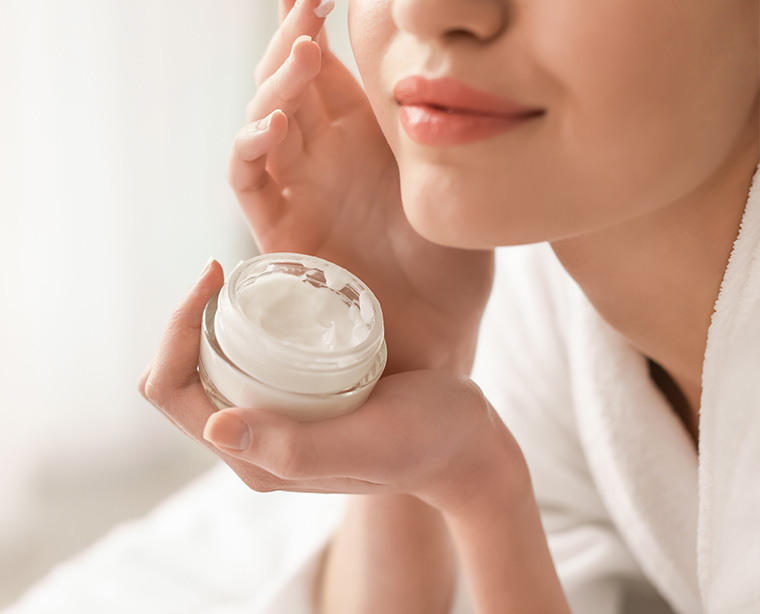

The psychological impact of atopic eczema is real

The potential psychological impact of atopic eczema must not be underestimated, especially considering the feelings of shame and guilt often associated with the disease.
A very real psychological impact
Chronic disease
A visible chronic disease can make a patient, as well as his or her parents, feel helpless and powerless to manage the situation. It can be exhausting in a way, with each new flare-up bringing a sense of disappointment: “I had hoped the previous one was my last”.
Judgment from others
Eczema is visible. No one likes to have others look at their body with fear, judgment or persistence. This anxiety grows as the number of potential onlookers increases.
When a child must confront his or her peers at school, the glares and insults can quickly lead to feelings of rejection. Some children ultimately believe that no one could love them because of how their skin looks.
Sleep disorders
In many cases, the intense itching associated with eczema may cause the patient to feel restless, thus resulting in poor sleep quality. The patient becomes tired and lacks the energy required to get through the day at school or at work or to complete other daily tasks.
The treatment to be followed
You may be surprised to learn just how much of an impact atopic eczema can have on your daily life. Between cleansing, treatments, proper clothing and sheets, and good habits regarding physical activities... the adaptations are endless. It adds to the mental load of patients and their parents, imposing constraints they would rather not have to think about.
Preconceptions
There are many misconceptions about eczema: it’s a hygiene problem, it’s contagious, it’s all in one’s head, etc. Indeed, the list is endless. If you live with the disease, you have no doubt heard them all. Having to face the misplaced judgments and fear from others only adds to the psychological burden of atopic eczema.
Guilt
Still today, parents too often feel responsible for their child’s disease due to its genetic origin. They are, of course, blameless and must cast aside this guilt in order to focus on the facts: atopic dermatitis is a disease that affects the skin, unable to fulfill its protective barrier roll. This is, in part, a consequence of the modern world, urban life, a reduction in the number of infectious diseases, the modern diet, and changes in the gut and skin flora.
Searching for “the” guilty culprit
It would be more accurate to talk about triggering factors, as the one, single cause is atopy, the genetic condition that predisposes an individual to eczema. We often strive to find the cause and become discouraged when one is not found; however, these factors combine like pieces of a puzzle. Learning to recognize these triggers and your body’s reactions is key, but try to avoid turning this endeavor into an impossible and thus disparaging quest.
Respecting boundaries
If the parents continue to apply the treatments, even at a time when the child is developing a sense of modesty, then the situation can become even worse. The child is unable to establish boundaries, an essential stage for determining what is acceptable or unacceptable, visible or covered, private or public, and so on. An inability to establish this boundary, symbolized by the skin, may bring about feelings of shame.
Solutions for living better with eczema
Take control of the disease
- Teach the child to apply their treatments independently; it doesn’t have to be perfect.
- Find the products that suit them best, particularly in terms of the emollient’s texture.
- Become informed about the disease to better understand its mechanisms and erase the stigma.
- Parents can also book special consultations to ask questions, without their child being present, because caregivers also need advice and attention.
Discuss other topics
Asking your child every day whether they’ve scratched is unlikely to bring about a positive outcome. Your child, like all children, needs to talk about their day, friends, school, life... anything but eczema!
Understand that eczema is in no way “all in your head”
Stress is not the cause of eczema. Atopic eczema is a genetically inherited disease: it is not your fault. Our society must stop blaming or discrediting people with eczema.
Most importantly, stress is known to aggravate eczema and trigger flare-ups, but it is never the cause.
Therapeutic education workshops
These sessions are an opportunity to better understand the disease and its treatments, discuss the challenges, speak with other patients, and ease feelings of loneliness and guilt.
Sources of relief
Taking the time to focus on well-being does wonders for reducing the psychological repercussions of eczema.


